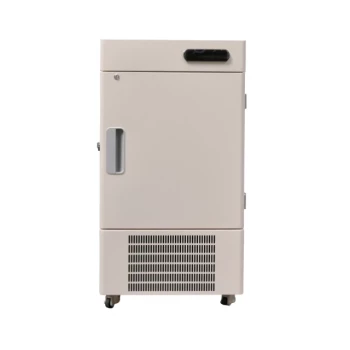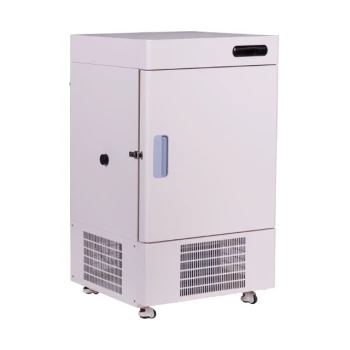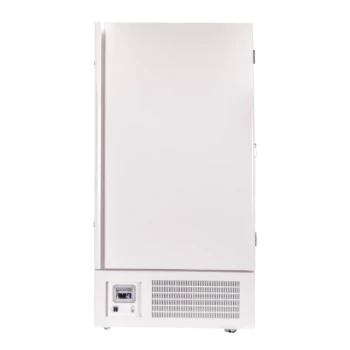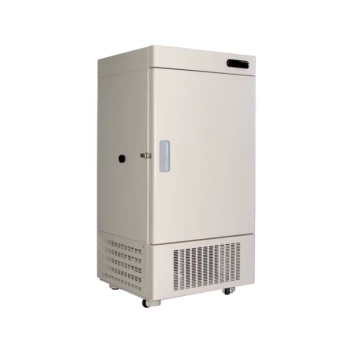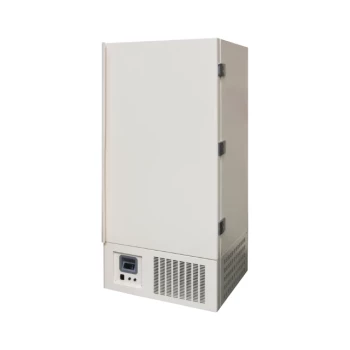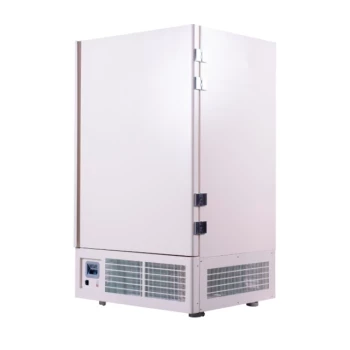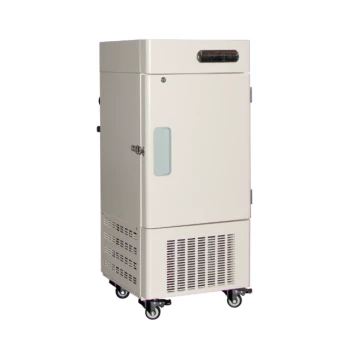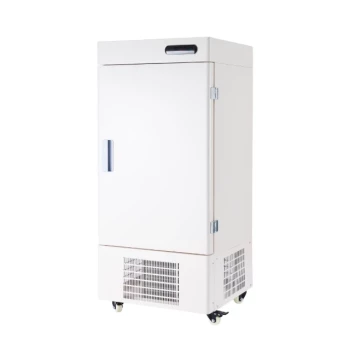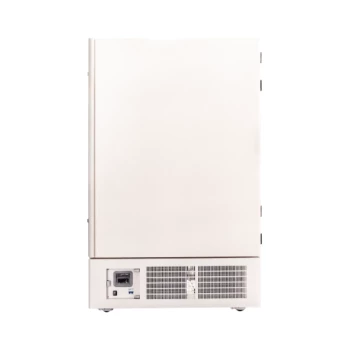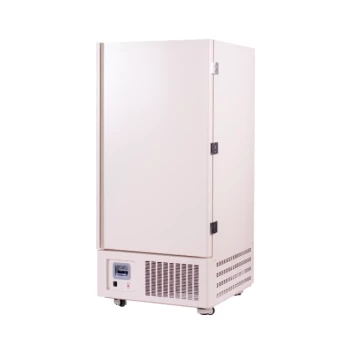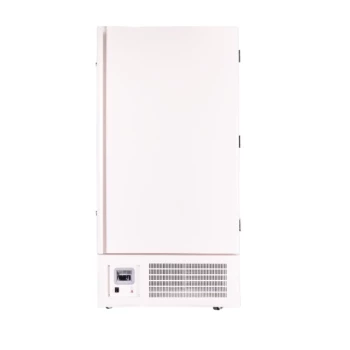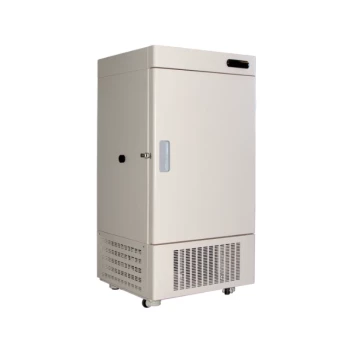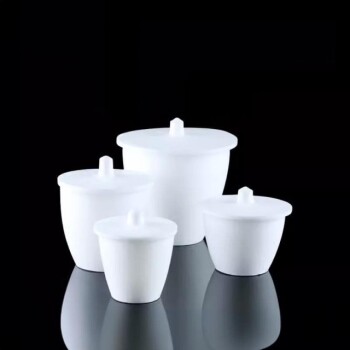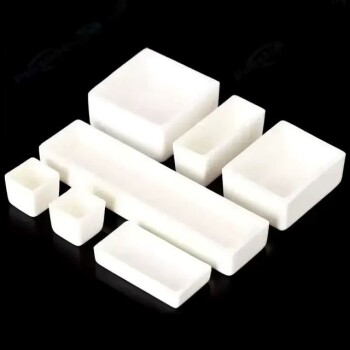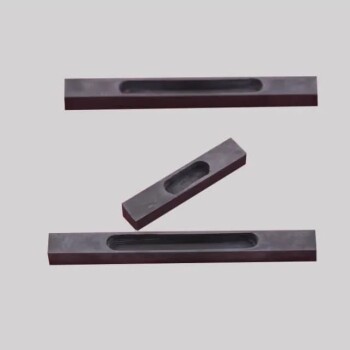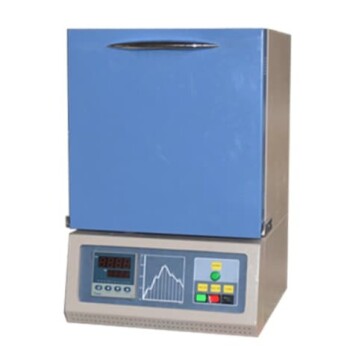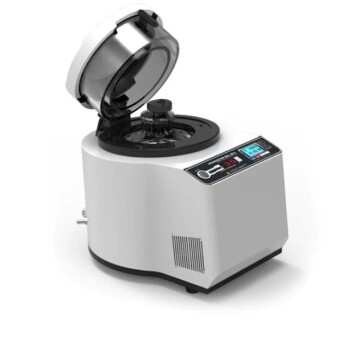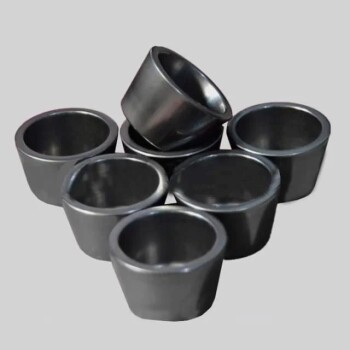For the long-term preservation of most common biological samples, a temperature of -70°C is a widely accepted and effective standard. This includes critical materials such as nucleic acids (DNA and RNA), the majority of proteins, and microbial stocks like bacteria and viruses. This temperature effectively halts the biochemical processes that lead to sample degradation over time.
The core principle behind -70°C storage is that it pushes samples far below the threshold of most enzymatic and chemical activity. This creates a state of suspended animation, preserving the molecular integrity of the material for months or even years.
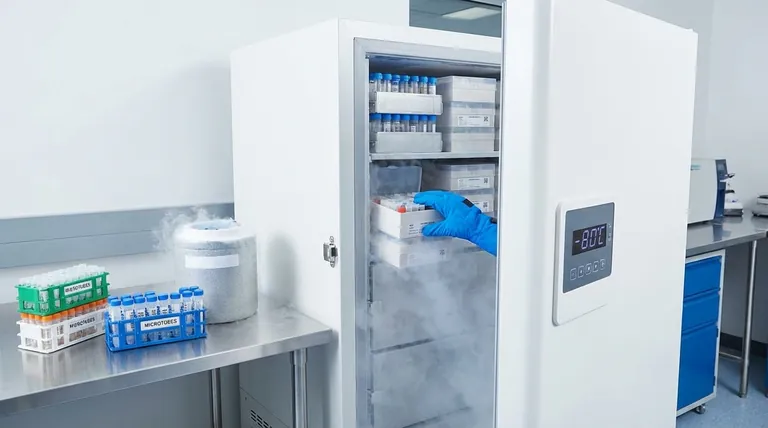
Why -70°C is a Laboratory Standard
The use of -70°C (or similar ultra-low temperatures like -80°C) is not arbitrary. It represents a critical threshold for stopping the molecular motion and enzymatic reactions that would otherwise destroy your samples.
Halting Molecular Degradation
At warmer temperatures, even when frozen, enzymes like nucleases (which degrade DNA/RNA) and proteases (which degrade proteins) can retain some residual activity. Dropping the temperature to -70°C effectively stops these enzymes in their tracks, providing robust long-term protection.
A Historical and Practical Benchmark
Historically, ultra-low temperature (ULT) freezers were commonly engineered to reliably maintain temperatures around -65°C to -70°C. This technological capability established the temperature as a practical and effective benchmark for labs worldwide, creating a proven standard for sample preservation protocols.
Key Materials Suitable for -70°C Storage
While many sample types are stable at this temperature, understanding the specifics for each category is crucial for maintaining their integrity.
Nucleic Acids (DNA and RNA)
For long-term archival, -70°C is the preferred temperature for both DNA and especially for RNA, which is notoriously less stable. While -20°C may be sufficient for short-term DNA storage, the ultra-low temperature provides superior protection against degradation over many years.
Proteins and Enzymes
Most purified proteins and enzymes are safely stored at -70°C. This prevents proteolysis and denaturation, preserving the protein's structure and function. It is a standard practice for storing valuable antibody stocks, recombinant proteins, and enzyme preparations.
Bacteria and Viruses
A temperature of -70°C is essential for preserving the viability of bacterial and viral stocks. When combined with a cryoprotectant medium (like glycerol), this temperature allows for the creation of stable, long-term archives that can be revived for future experiments.
Understanding the Critical Considerations
Simply placing a sample in a -70°C freezer is not enough. The context surrounding the storage is just as important as the temperature itself.
The Danger of Freeze-Thaw Cycles
The primary threat to sample integrity is not the storage temperature, but the physical stress of repeated freezing and thawing. This process can shear nucleic acids, denature proteins, and kill cells. The best practice is to aliquot samples into single-use volumes before their initial freeze.
When -70°C May Not Be Cold Enough
While -70°C halts most biological activity, it does not stop it entirely. For the absolute highest level of preservation, particularly for viable cell lines or irreplaceable samples intended for multi-decade biobanking, liquid nitrogen (-196°C) is the gold standard. At this temperature, all metabolic processes cease.
The Role of Cryoprotectants
For any living material, such as bacterial cultures or other cell types, a cryoprotectant is non-negotiable. Additives like glycerol or DMSO are required to prevent the formation of sharp ice crystals that would otherwise puncture and destroy the cell membranes during the freezing process.
Making the Right Choice for Your Samples
Your storage strategy should align directly with the nature of your samples and your research goals.
- If your primary focus is routine, long-term archival of nucleic acids, proteins, or microbial stocks: A -70°C freezer is the reliable and appropriate industry standard.
- If your primary focus is preserving the viability of sensitive eukaryotic cell lines or creating a permanent biobank: You must use storage in liquid nitrogen (-196°C) to guarantee complete biological stasis.
- If your primary focus is maximizing sample integrity for all sample types: Your most critical action is to aliquot samples into single-use tubes to eliminate the damaging effects of freeze-thaw cycles.
Proper storage is the foundation of reproducible science, ensuring the value and integrity of your biological materials for the future.
Summary Table:
| Material Type | Suitability for -70°C Storage | Key Considerations |
|---|---|---|
| Nucleic Acids (DNA/RNA) | Excellent for long-term archival | Preferred for RNA; prevents nuclease degradation |
| Proteins & Enzymes | Highly suitable | Preserves structure and function; prevents denaturation |
| Bacteria & Viruses | Ideal with cryoprotectants | Maintains viability; use glycerol/DMSO for cells |
| Eukaryotic Cell Lines | Not ideal for long-term viability | Use liquid nitrogen (-196°C) instead |
Ensure your valuable biological samples are preserved with precision and reliability. KINTEK specializes in high-performance lab equipment, including ultra-low temperature freezers and storage solutions designed to meet the exacting demands of modern laboratories. Protect your DNA, RNA, proteins, and microbial stocks with equipment you can trust. Contact our experts today to find the perfect storage solution for your research needs!
Visual Guide
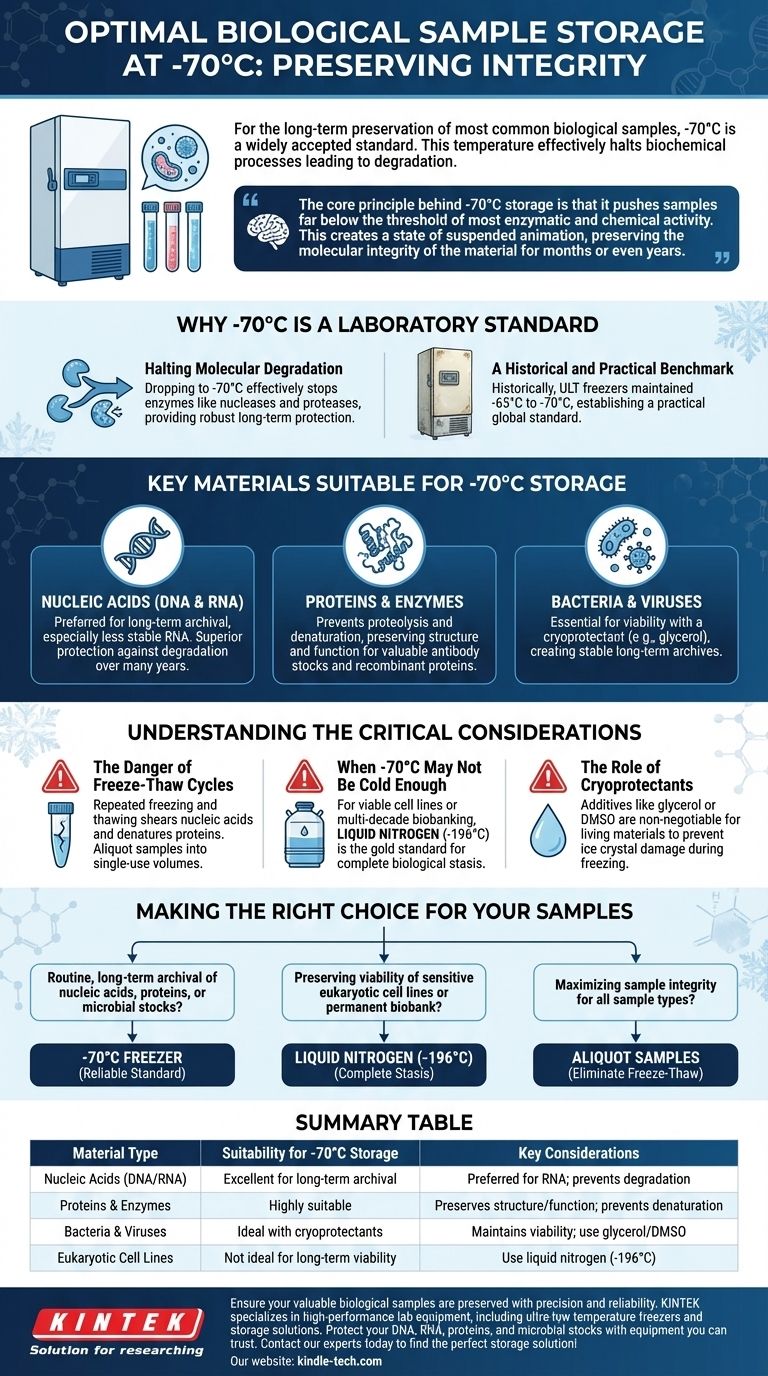
Related Products
- 58L Precision Laboratory Ultra Low Temperature Upright Freezer for Critical Sample Storage
- 108L Vertical Ultra Low Temperature ULT Freezer
- 708L Ultra Low Temperature Freezer High Performance Laboratory Freezer
- 208L Advanced Precision Laboratory Ultra Low Temperature Freezer for Cold Storage
- 608L Essential Laboratory Ultra Low Temperature Freezer For Critical Sample Preservation
People Also Ask
- What are ultra-low temperature freezers designed for? Preserving Your Most Valuable Biological Samples
- What features do ultra-low temperature freezers typically include? Ensuring Absolute Sample Security
- What are the key features to look for in an ultra-low temperature freezer for mRNA vaccine storage? Essential Features for Absolute Vaccine Integrity
- How does fast temperature recovery benefit ultra-low freezers? Protect Sample Integrity and Lab Efficiency
- How do ultra-low temperature freezers work? Unlocking the Secrets of -86°C Sample Preservation
